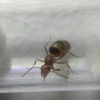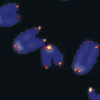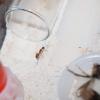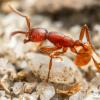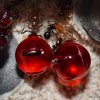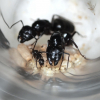Greetings!
I know this is going to be debated a bit, but I have a few questions.
Is releasing ants bad?
Let me give you this quote from an actual entomologist. He pinpointed the issues better than i ever could.
So the reason we don't re-release ants once they've been in captivity is several-fold.
First of all, let's deal with the big thing: if you buy ants from online, they're very unlikely to be local, even if they're the same species. I can buy a Lasius niger from online, which is about as abundant as you can get in the UK, but that doesn't mean I can introduce them locally. The reason for this is that local populations of a given animal have local genetics to that region. Despite being the same species, their traits can differ quite a bit between even local regions, and that, twinned with the fact that eusociality generally results in a low number of individuals within a given area (with colonies being individuals vs actual individual ants), you can seriously disrupt the local balance of genes in a given area, especially as you've released a set of ants post-founding eliminating natural selection for a large part of their life-cycle.
But let's say you caught your Lasius niger queen from your garden, why is it important that you don't re-release? The previous argument actually still holds (you've removed them into a more febrile environment for a part of their lifecycle), but more importantly you're changing the parasitic balance of your local ecosystem.
So what the heck does that mean? Basically, the conditions that you raise your ants in will be very different from the native environment of the ants. As a result, parasites (mites, fungi, bacteria) are way more likely to propagate. It's not a problem for your ants cause they have an abundance of food, clean water etc., but it allows populations of these diseases to propagate in a way they wouldn't have the ability to in the wild. When you re-release, you can seriously disrupt your local invertebrate ecosystem by introducing your biological-weapon ants on it.
Edited by Serafine, July 24 2022 - 11:08 AM.



